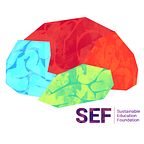Meet Sri Lankan Researcher — Jerome Dinal Herath
What are you currently working on or worked on before?
Broadly my research revolves around machine learning. More specifically I work on interpretable machine learning, where we try to understand “Why do machine learning models work?” and adversarial machine learning where we ask the question “Are machine learning models robust? can they be fooled?”
What encouraged you to pursue your research topic?
We all know that Machine Learning (ML) / Artificial Intelligence (AI) will be a major part of future technology if not already it is. But before we adopt ML or AI in all applications that concern our day to day life, we should stop for a bit and ask “Should we really use ML/AI? is it safe? Do we know why the ML model or AI agent behaved in a given way?” My research basically asks all these questions and I think it is important to fully understand the technology we use.
What is the name of your current institute?
The State University of New York at Binghamton.
Where do you find your best inspiration for your work?
Well, personally I try not to actively look for inspiration to say, research is more like a backend process that’s always running in my head (that’s what it’s like to me). So I usually get ideas in the most random of situations. I know it’s not really a definite answer, but right now I don’t have one.
Can you share with us some of your publications?
Sure, I host my work on my website.
What’s one of your biggest personal achievements so far?
I think at the moment, I would say being part of a Computer Science (CS) Ph.D. program would be my best achievement. I am originally not from a CS background, rather my specialization was in a subfield of Physics. So the transition was an uphill battle, which I’m totally happy about getting through.
What lessons would you share with a budding researcher?
Well, two things
- If you are planning to pursue a Ph.D., one of the most important things to remember is to find the “right” advisor. PhDs are like mentorship, so an advisor's influence greatly affects the final outcome.
- 9/10 ideas you try in research will fail (it happens to me and I’m sure it happens to most other scientists/researchers too), mostly because you will try to find answers to new questions. So it’s always important to have a positive attitude amidst the failures.
What motivated you to be a researcher?
I got my first taste of research when I was an undergraduate student at the University of Colombo. My specialization was in Computational Physics and we had a one-year-long research project to complete as part of the degree. During that time I realized that research gave me complete freedom to try new ideas unlike any other kind of work I had done before. I think that’s when I seriously considered being a researcher.
If there is a chance, will you help build research in Sri Lanka?
Yes, I’d be happy to help in any way I can.
According to your opinion, what are the changes that the Sri Lankan education system needs to do, in order to meet the requirement of the international industry and academia?
I would like it if research could be a component of the curriculum from the 1st year, instead of only being a 4th year component in the forms of the final research project. I understand it’s easier said than done, but that is something I see in universities here a lot, where undergraduate students can work alongside graduate students from their 1st year. This builds a lot of research experience simply because students get to be in a research environment for a longer time.
